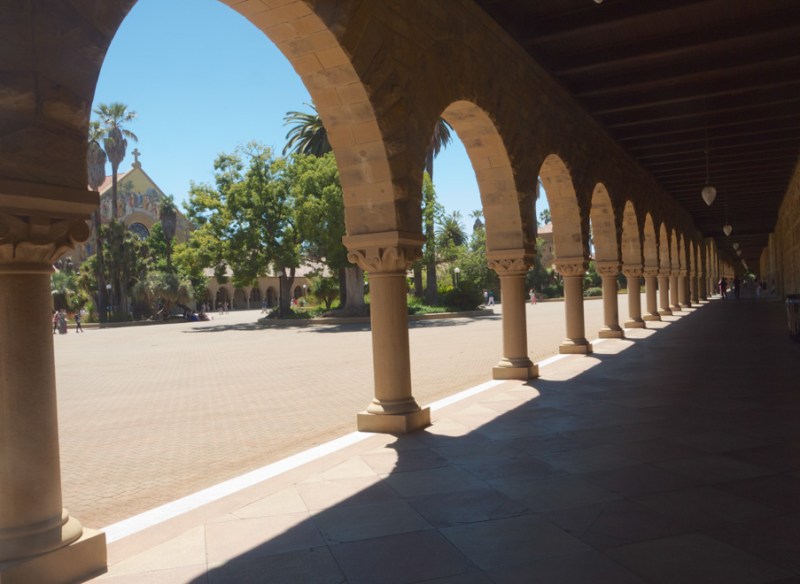On Saturday, the Associated Students of Stanford University (ASSU) Elections Commission announced the results of the 2018 race. Included were winning slates for ASSU Executive and junior and senior class presidents, as well as candidates elected to the Undergraduate Senate and the Graduate Student Council.
Not on the list? Next year’s sophomore class presidents.
Instead, the official preliminary results sheet of the ASSU Elections Commission stated that results would be forthcoming, pending “investigation of potential campaigning violations.”
The Commission has not publicly announced what such violations might include or who is believed to have committed them. However, the list of potential suspects is limited, with only four slates — StanFor-U, The Culture, FOREVER ’21 and Twenty-One, Twenty-Fun — having run for the position.
One potential infraction that could have prompted the investigation is a party that was held in Otero on Friday, April 6.
“I was invited by [a member of] the Forever ’21 slate to the party,” an anonymous freshman attendee said. “There were alcoholic drinks at the party, and [the drinks] were labelled with the names of the Forever ’21 slate.”
However, aside from the labels, the freshman attendee said that campaigning did not take place. They added that the candidates served hard alcohol in the dorm room, but that the party was focused in the dorm’s lounge, where drinking did not occur.
“Nobody was really talking about the election,” they said.
Two more party attendees, also freshmen, confirmed the initial attendee’s report.
The slate members — Rozy Eastaugh ’21, Miles Menafee ’21, Troy Shen ’21 and Kiki Velez ’21 — did not deny or corroborate the allegations but did note that they have been in contact with the Elections Commission.
“At this moment, FOREVER ’21 has submitted a written account of the incident to the ASSU, and we are confident they will reach a decision that preserves the integrity of the election, regardless of what the results may be,” said Shen, speaking for the slate. “We choose not to expand upon this because a brief description alone would not capture the nuances of the situation.”
“FOREVER ’21 is fully cooperating with the ASSU Elections Commissioner,” added Eastaugh.
However, the slate maintained that they did not know what the ASSU investigation is about “as there have been various reports surrounding other slates in this election,” according to Velez.
One other slate said that they are not under investigation.
“Our slate is not under investigation, but we’re fully cooperating with the ASSU Elections Commissioner about the pending election,” said Celine Foster ’21 of the Twenty-One, Twenty-Fun campaign.
Velez, also on behalf of the Forever ’21 slate, later said that the slate is “confident that [they] haven’t broken any campaign or dorm regulations.”
It is a violation of campaign regulations to break University policy, and it is a violation of University policy to break California state law, under which “it is illegal for anyone under the age of 21 to purchase alcohol or to possess alcohol in a public space… [and it is] illegal for anyone to furnish alcohol to an individual under the age of 21.”
If the FOREVER ’21 or another slate was found to have broken this law, they would be in violation of ASSU campaign regulation.
Elections Commissioner Paul Serrato ’19 did not respond to multiple requests for comment.
The campaign regulations to which candidates are subject are intended to “ensure a fair and equal playing ground” under Election Commission regulations.
For instance, in addition to forbidding candidates from breaking University policy, campaign regulations bar candidates from making “rude or offensive remarks and advertisements,” using their authority — like a residential staff position — for personal gain, appropriating logos for personal use or violating guidelines regarding flyering, chalking and other modes of advertisement.
There are also campaign finance regulations that must be adhered to. For class president candidates, spending is capped at $400, and any funding from non-ASSU sources must be reported.
“If the Elections Commission is made aware of any infractions,” the Commission website says, “the person in question will be notified and shall have 24 hours to resolve the issue or risk losing ballot access.”
No policy is listed for persons who are found to have committed an infraction after already being listed on the ballot, nor for after the election has already ended.
Per the Commission’s 2018 Voter Guide, class presidents do not technically operate under the ASSU governance structure. They do appear on the ASSU ballot for voters in their respective class, but “mostly deal with class programming and events instead of funding and policy.”
This news follows claims by The Stanford Review that Michael Ocon ’20, who ran with Khaled Aounallah ’19 for ASSU Executive, had potentially accepted campaign funds and support from conservative nonprofit Turning Point USA. Ocon disputed the claims, labeling them “a clear example of voter manipulation.”
This report will be updated as further details come to light.
Contact Brian Contreras at brianc42 ‘at’ stanford.edu.
